The right-wing administration of South Korean President Yoon Suk-yeol has been dealt a heavy blow in the country’s legislative elections held April 10, a development that jeopardizes his efforts to push back against North Korea, Communist China, and their influence in South Korea itself.
Yoon, formerly the prosecutor-general of the Republic of Korea (ROK, South Korea’s official name), was elected president in early 2022, narrowly beating his socialist rival Lee Jae-myung of the Democratic Party.
But in the Wednesday parliamentary races, Yoon’s People Power Party was handed a series of defeats, further entrenching the Democratic hold on the legislature.
According to the ROK National Election Commission and South Korean media, the PPP won just 108 seats, while the Democrats now control 175.
Prior to the election, the People Power Party held 114 seats to the Democratic Party’s 154. In South Korea, the legislative vote takes place every four years, while presidents are elected for a single five-year term and cannot run for re-election.
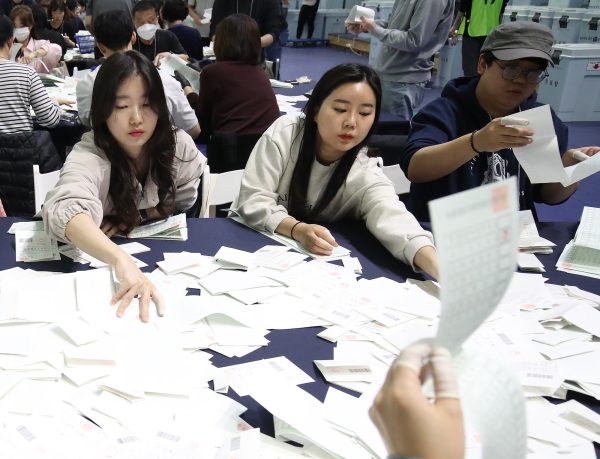
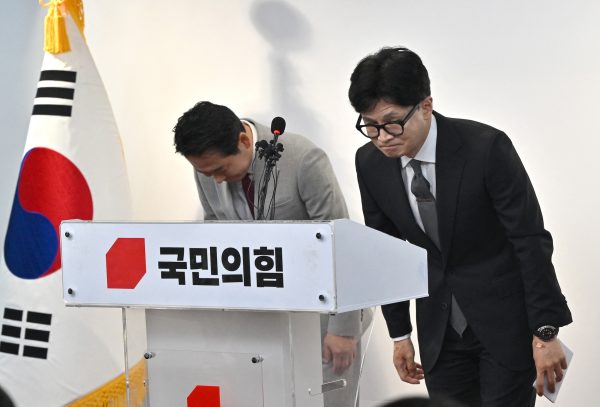
Foreign outreach, domestic impasse
Success
You are now signed up for our newsletter
Success
Check your email to complete sign up
President Yoon has pursued a robust foreign policy aimed at deepening ties with the U.S., Japan, and other countries. Under the PPP, Seoul has spent billions on foreign outreach in hopes of turning the ROK into a “global pivotal state.”
Meanwhile, the PPP and Yoon had tapped into growing concern in South Korean society about the communist threat presented by the People’s Republic of China (PRC) and North Korea, officially the Democratic People’s Republic of Korea (DPRK).
In general, the Democratic Party and other progressive groups in South Korea favor friendlier approaches to North Korea and China, while conservative factions like the PPP advocate greater caution as well as strengthening the U.S.-led alliance structure.
North Korea has continued to build up and improve its nuclear weapons and ballistic missiles, including successfully launching a spy satellite last November. Its technological progress has been aided by Russia, whose invasion of Ukraine has been boosted by the DPRK selling them millions of artillery rounds.
- US Puts Pressure on China as Ukraine War Escalates
- Controversial Geoengineering Experiment Launched Quietly in San Francisco
- US and Japan Forge Deeper Alliance to Counter China, Strengthen Economic Ties
In response, the Yoon administration has canceled various inter-Korean activities and taken a more hawkish stance on Pyongyang and its nuclear threats, with Yoon declaring that a nuclear war started by the North would simply result in the regime being “brought to an end by an overwhelming response from the ROK-U.S. alliance.”
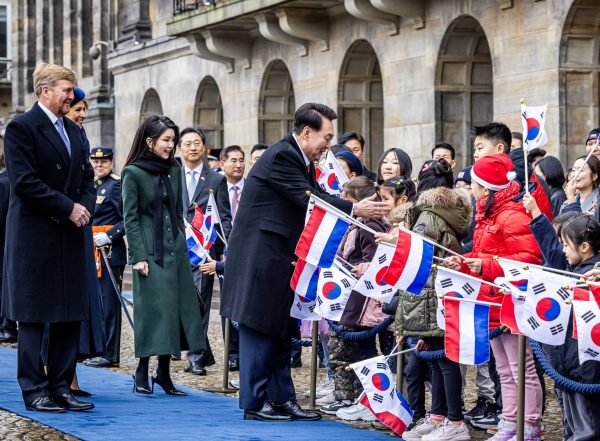
At home, however, Yoon has been on the defensive since taking office two years ago, with Democratic and other opposition lawmakers holding most of the seats in the ROK’s unicameral parliament.
This has rendered Yoon and the PPP unable to pass laws, Rob York, director for regional affairs at the Hawaii-based Pacific Forum think tank, told Japan’s Nikkei Asia.
Instead of passing laws, Yoon has had to veto ones he disapproves of, already using this power nine times.
The South Korean political debate has become increasingly focused on economic issues, especially food and housing costs. “Both major parties have promised to increase state assistance for households. In particular, parties have pledged to allocate funds for hot-button issues such as medical care and the country’s low birthrate,” as reported in the Nikkei Asia piece, published April 11.
“Security and economy are one,” Yoon had said last October while visiting a frontline military unit guarding the inter-Korean border. “When the military protects national security with great strength, the people can have trust and engage in economic activities, create jobs and grow.”
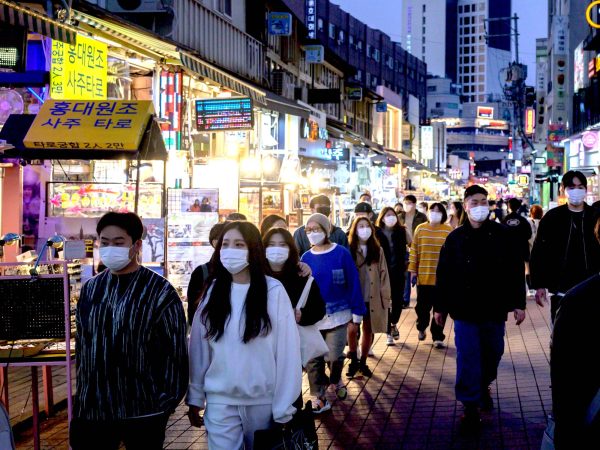
But due to the legislative impasses, Yoon has few domestic political achievements under his belt that would lead to an improvement in South Korea’s economic and social conditions. In the first week of April, just before the elections, Yoon’s approval rating was only 37.3 percent, as reported by polling firm RealMeter.
Two women interviewed by Nikkei Asia at a polling station in eastern Seoul gave mixed views of the present. One, Lim Hyun-soo, said she voted for the PPP legislative candidate because she believed Yoon was “doing well and to do better, he needs more support and cooperation.”
But the other, Kim Da-hye, said that she had voted the opposite way because “life is really difficult these days in Korea, in every way, and Yoon doesn’t have any vision for how to lead us out of it.”
- South Korea’s Birthrate, Already Lowest on Earth, Falls Even Further
- TikTok Surges in Vietnam Despite Increased Regulatory Pressures
Red influence
The retreat of Yoon’s PPP means advances for the left-leaning progressive wing of South Korean politics, among which many influential figures advocate greater ties with China and even North Korea.
Yoon’s rival in the 2022 presidential race, Lee Jae-myung, has been criticized for his stance on the North, with one victim of DPRK aggression describing Lee’s friendly remarks about North Korea’s past leaders as “fraternizing with the criminal regime.”
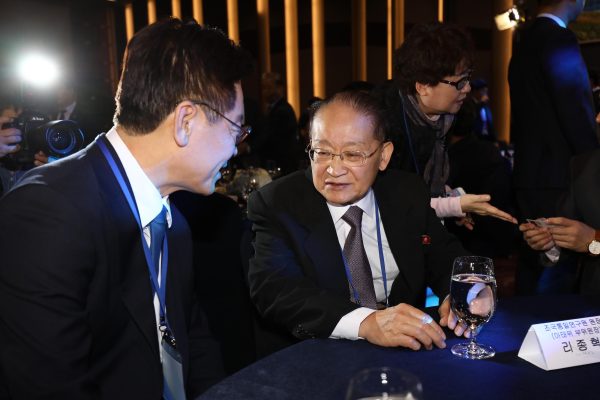
Both North and South Korea claim each other’s territory, having fought a war from 1950 to 1953 that was started when the DPRK, under dictator Kim Il Sung, invaded the poorly defended South. The country was saved by the intervention of a multinational U.N. force, primarily consisting of American and allied troops; the conflict killed millions and ended in a stalemate.
Kim’s grandson, Kim Jong Un, who has ruled North Korea since 2011, recently recast his country’s official stance on South Korea, saying that peaceful reunification was no longer a goal and that Pyongyang would begin to view the ROK as an enemy state.
- Kim Jong Un Publicly Suggests Failure of North Korea’s Rationing System
- Tibetans in Exile – Raising Voices for a Distant Homeland
Meanwhile, the Chinese Communist Party (CCP) has long sought to transform its economic ties with South Korea into political sway.
In 2022, senior CCP official Li Zhanshu visited the ROK in his capacity as then-chairman of the PRC National People’s Congress. The trip “led to the creation of a parliamentary fraternity group—the South Korea–China Parliamentarians’ Union, with one-third of the 300 Korean National Assembly members joining to facilitate legislative exchange,” as mentioned in a Jan. 21 feature report by Eva Fu of The Epoch Times.
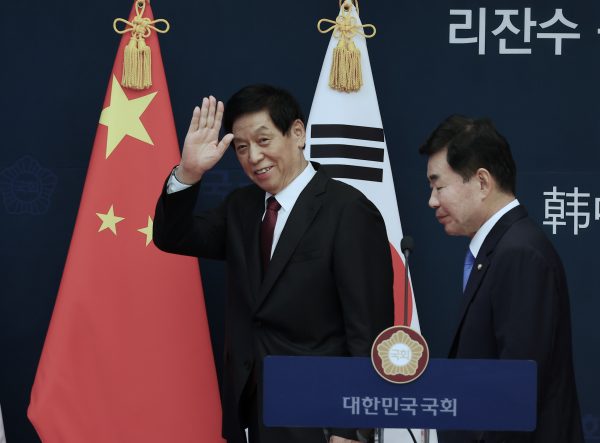
In the report, titled “Inside the CCP’s Unconventional War Against South Korea,” a former head of a Chinese-Korean association with sources close to the PRC embassy in South Korea was quoted as saying that such exchanges were extremely inappropriate and constituted part of Beijing’s overall strategy to influence the ROK.
“It doesn’t make sense to me that officials from a communist country and lawmakers from a free country should be working together on legislation,” he said.
A ‘war zone without gunfire’
The association head, whose identity was kept confidential, believes that the CCP, through its aggressive “united front” tactics to co-opt and manipulate South Korea, had turned the country into “a war zone without gunfire.”
Last June, Xing Haiming, the PRC ambassador to South Korea, met with Lee Jae-myung and other opposition lawmakers, warning them not to attempt to economically “decouple” South Korea from China.
- Yoon Hits Back at ‘Wolf Warrior’ Rhetoric From China’s Ambassador Xing Haiming
- Communist China Heads Down a Road of Isolation and Impoverishment
Yoon and other Korean officials protested Xing’s actions as an attempt to interfere in the ROK’s internal affairs.
Another indicator of the CCP’s hand in South Korea is the repeated suppression of Shen Yun Performing Arts. The successful and critically acclaimed New York-based classical Chinese company operates under a mission of showcasing Chinese culture and virtues free of communist influence, making it anathema to the CCP regime.
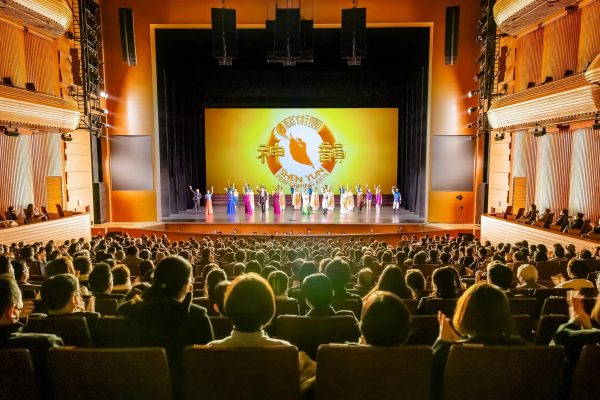
While the CCP has tried to sabotage Shen Yun’s performances in many countries, “in South Korea, more often than in other parts of the world, the tactics appear to have worked. Time and again, theaters have abruptly pulled back from contracting with Shen Yun,” Eva Fu, the Epoch Times reporter, wrote in another feature on South Korea published last October.
The Incheon Culture and Arts Center (ICAC) denied Shen Yun’s application for its 2023 tour over fears of possible damage to relations with Beijing, according to local organizers, Fu wrote in a subsequent article on revelations that the PRC embassy in South Korea had in previous years contacted South Korean cultural organizations and outright claimed that Shen Yun was “illegal.”
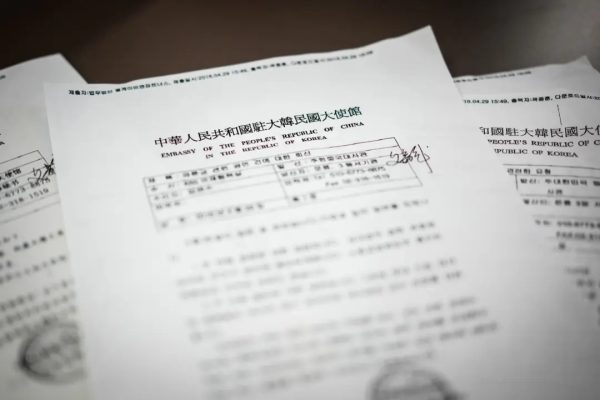
- US Lawmakers Voice Concerns Over the CCP’s Censorship of Shen Yun in South Korea
- Chinese-American Artists Targeted in Planned NYT Piece That Would Misrepresent Falun Gong, Shen Yun Performing Arts
In addition to the ICAC, “the Chinese embassy has also written to the national public broadcaster Korean Broadcasting System (KBS), demanding that it not let Shen Yun perform at its Seoul-based venue, the KBS Hall,” the article read.
Michelle Steel, a Republican U.S. congresswoman of Korean descent representing California, lamented in remarks made to The Epoch Times that the CCP’s pressure campaigns were denying the Korean people the chance to see Shen Yun, a show she described as keeping China’s “beautiful history and tradition” alive.
Steel penned a letter to Yoon Suk-yeol about the matter, writing, “it is the duty of democratic governments to defend freedom in the face of oppression.”















